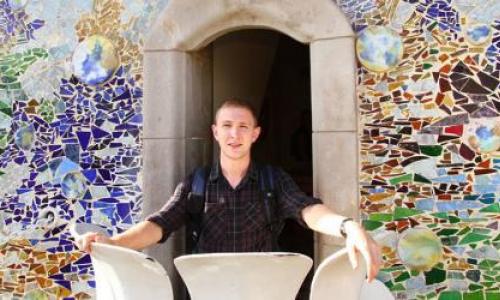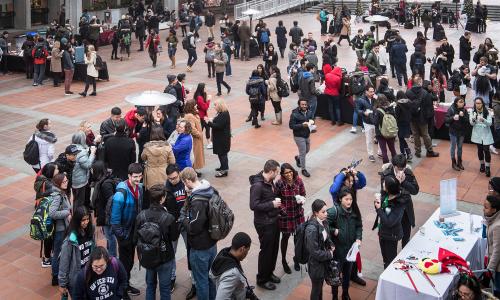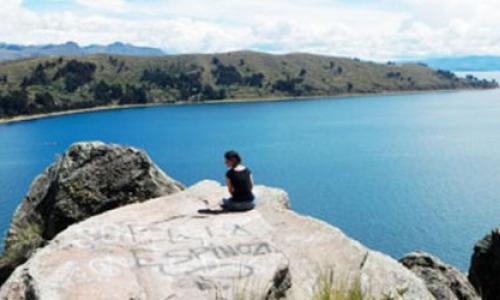
As an Urban Studies Master's student, I value the idea of placemaking as a core guideline to planning public spaces. Placemaking is mainly about connecting people and places and supporting communities to thrive in their spaces. It also means acknowledging the diversity of values and needs in a community and providing public service that cares for that.
That was what I found during my Co-op work term with the Transportation department of the City of New Westminster.
Having no previous experience with transportation planning, I was positively surprised to see how the human element is a priority in the work of planners and engineers. City staff puts noticeable effort in connecting people to places so that communities are served in the best possible way, considering the budget limitations of a small city.
During four months working for a small municipality in Metro Vancouver, I have learnt that a small structure for providing public service doesn’t mean having to settle for less. On the contrary, I have witnessed teams working with dedication and creativity to overcome big and small challenges.
From pursuing provincial and federal grants to answering phone calls from the public to explain minor traffic disruptions, it was all about human connection.
The Co-op work term in a small municipality helped me to not lose sight of those connections; in a cohesive team, everyone is aware of the big planning picture as well of the challenges of managing community expectations towards what the City should provide.
It became very clear that I cannot plan big without caring for the small details that affect people’s daily lives. It also reminded me that urban planning is not about numbers and stats. It’s about people working for people.
Speaking of human connections, those can really be a challenge for international students and immigrants, especially when it comes to career development. We are about to take our first step in our professional lives or, in some cases, to start over in new careers, but most of our social ties are far away.
How do we bridge that gap? The Co-op program is an opportunity to be seen as a potential asset for employers before our degrees are completed. Many organizations are familiar with Co-op and the quality work and practical skill sets that students contribute. I felt that to be true about SFU’s Urban Studies Program and I’m sure it is also true for many other programs. Even if hiring managers cannot relate to our background in other countries, they can certainly recognize a pattern in the good work that has been done by previous Co-op students.
As for the work itself, the position of a Co-op student allows us to really embrace the position of curious learners. As a first career step, it is okay that we don’t have all the answers. What is expected from us is that we bring our academic attitude towards work to ask questions and seek creative answers. That is a chance to make your own mark. I hope many take it as well!















